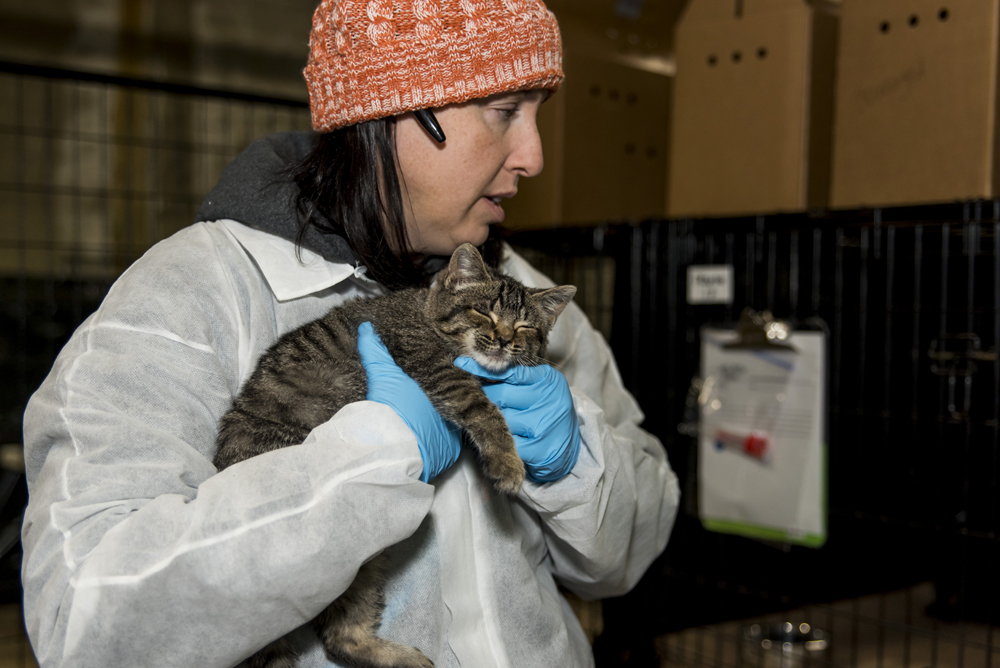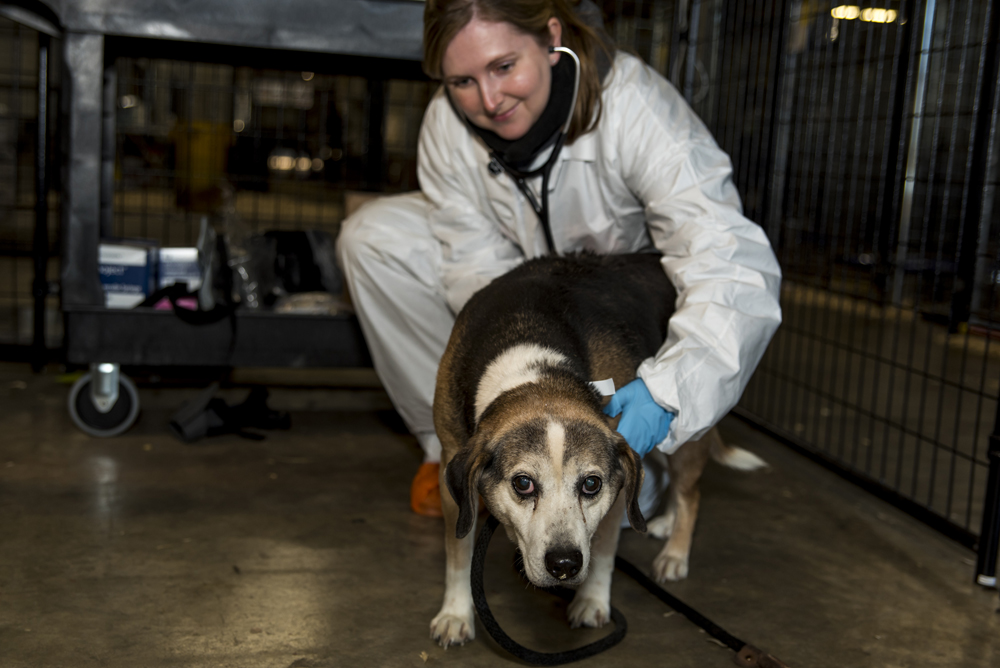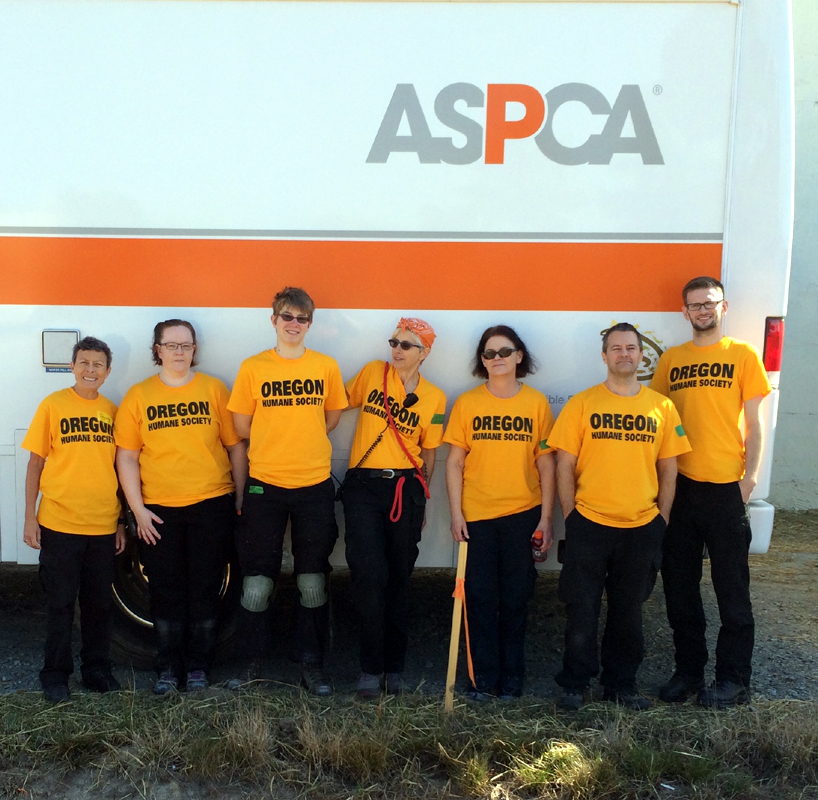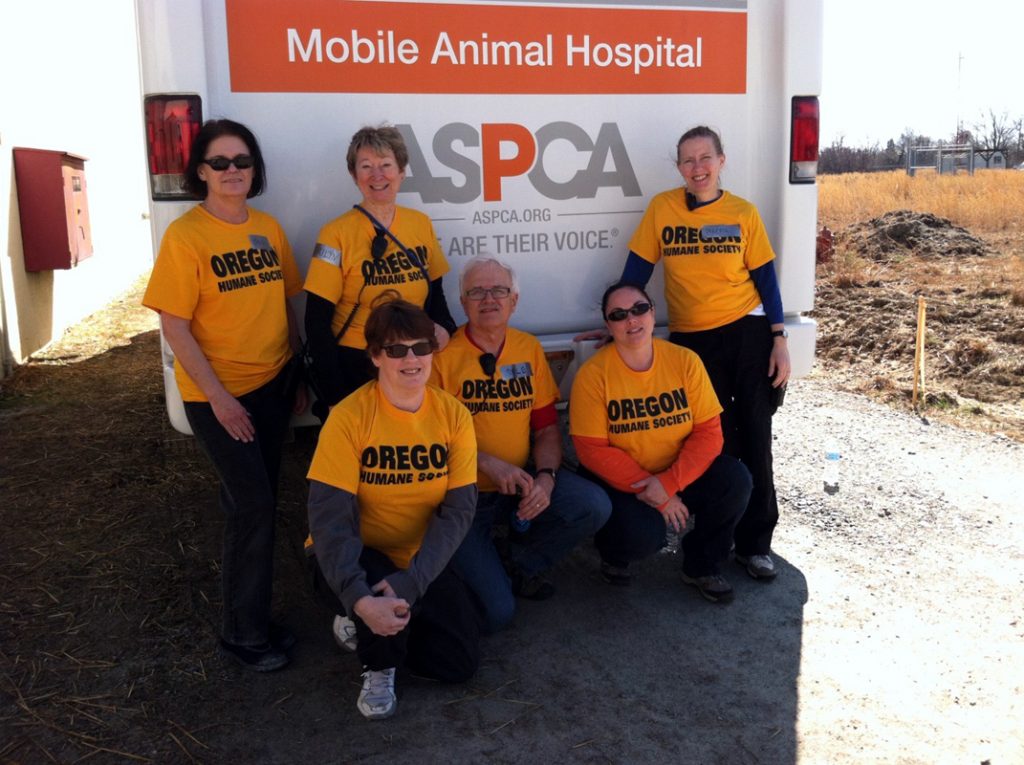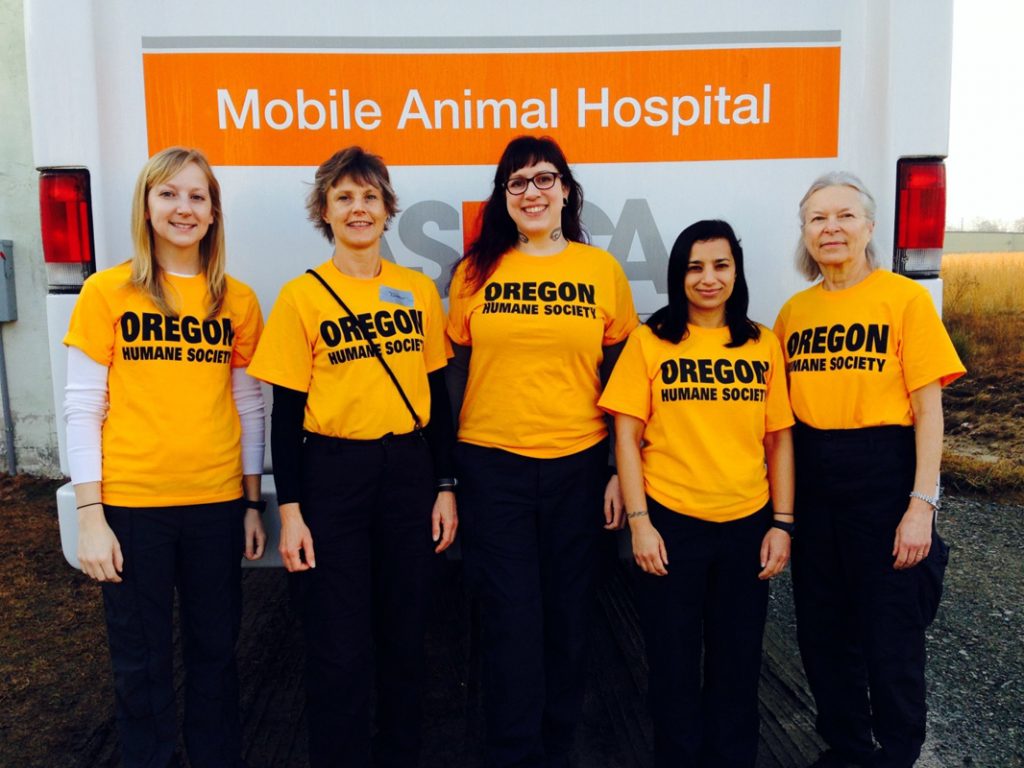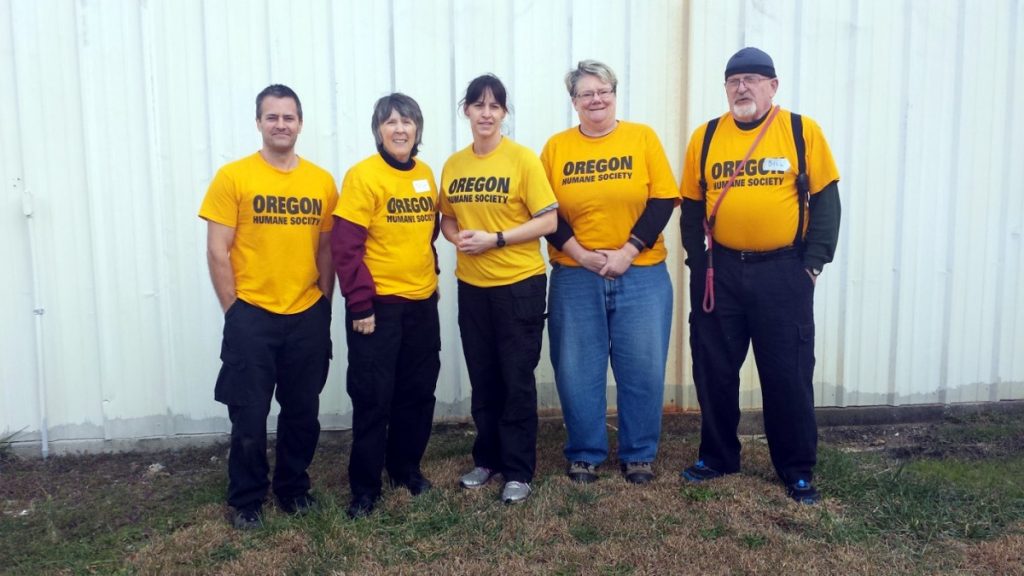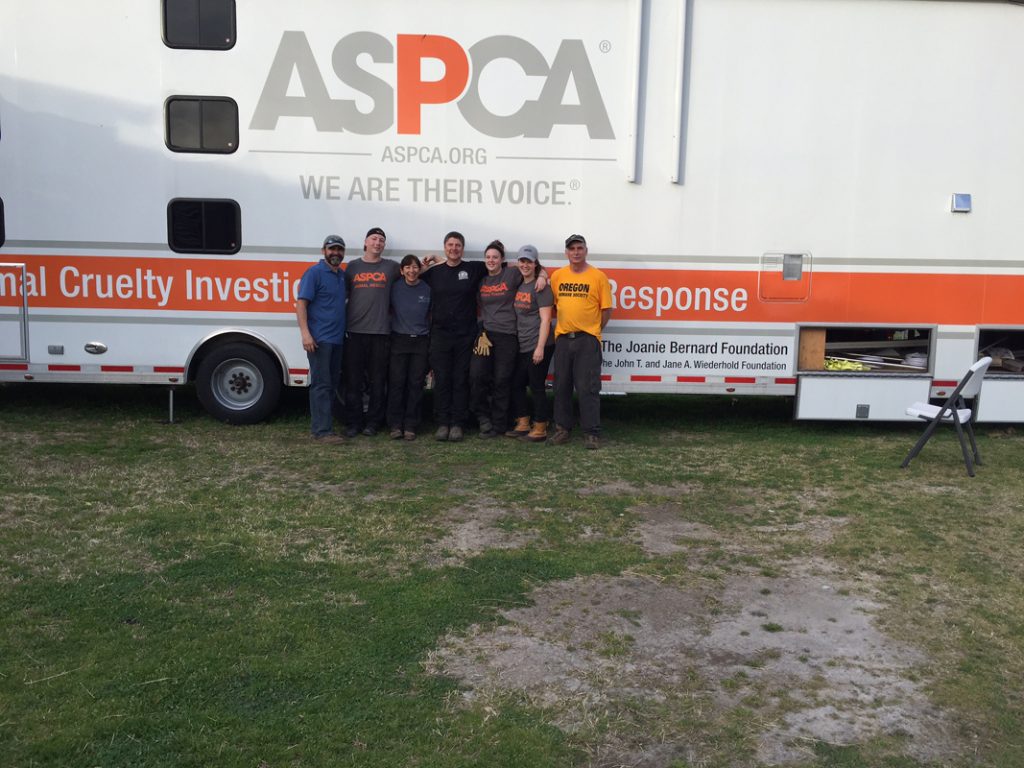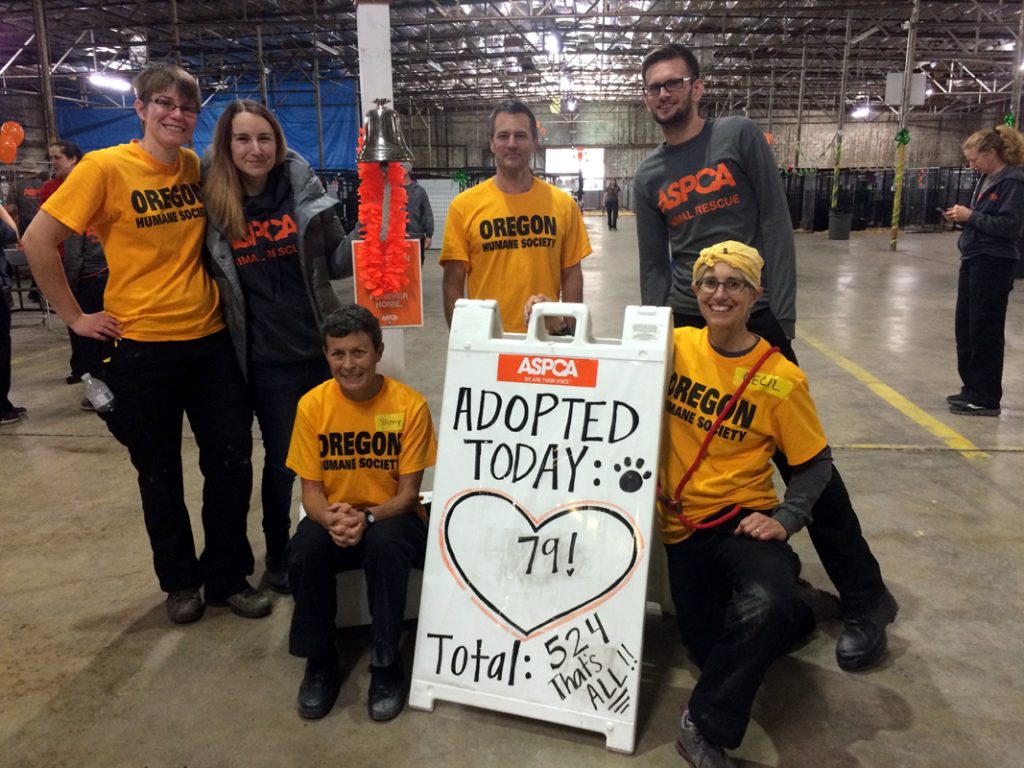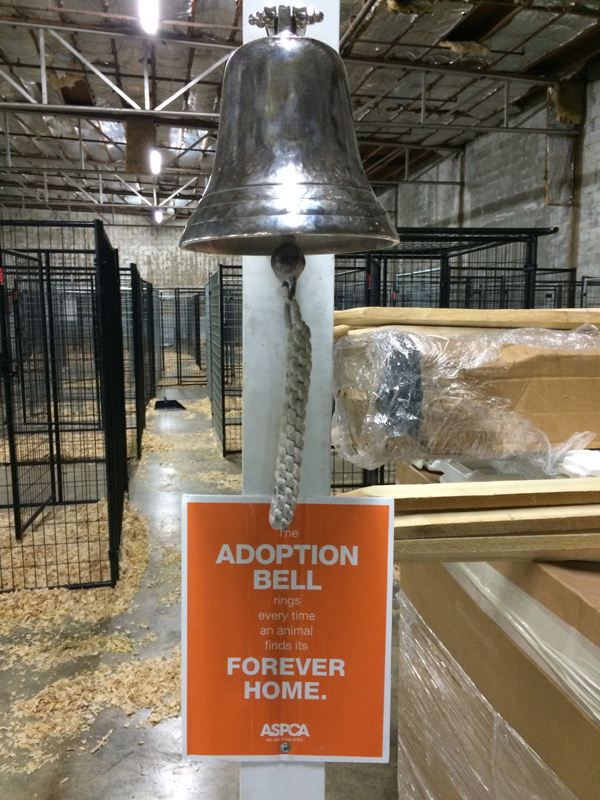Assisting with ASPCA Emergency Animal Rescue in North Carolina
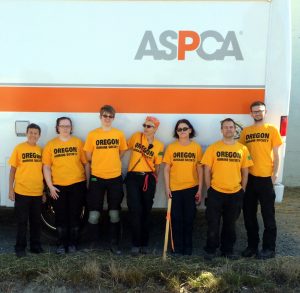
Who do you call when you need help caring for hundreds of neglected animals? Well, if you are the ASPCA and you have just conducted the largest companion-animal rescue mission in your organization’s history, you call OHS.
In January 2016, the ASPCA rescued nearly 700 severely neglected companion animals—mostly dogs and cats, but also horses, pigs, and chickens—from The Haven, a self-described “animal sanctuary” in rural North Carolina. With so many animals to care for so suddenly, the ASPCA called out to other animal organizations, including OHS, for volunteer help.
From February through March, volunteer responders from OHS traveled in teams to North Carolina, where the ASPCA set up an emergency shelter. Each team was deployed for one week. In total, 17 volunteers from OHS, specially trained in emergency animal sheltering, made the trip to help.
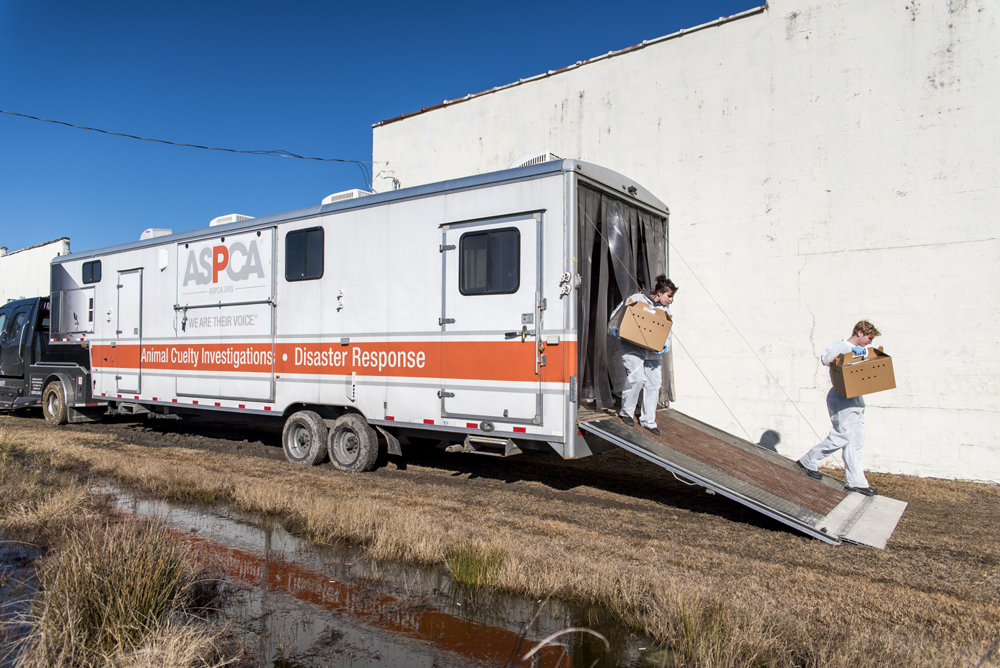
At first, the focus was on safely housing the animals and establishing daily care. In just a few days, two empty warehouses were transformed into a state-of-the art emergency shelter, complete with kennels, exercise pens, and medical treatment areas. Everyone had a job to do, and every job was important; whether it was cleaning kennels and cat boxes, prepping 1,400 individual daily meals, helping the medical team treat sick animals, or decontaminating hundreds of water dishes.
As one OHS responder recalled, “I can’t remember ever feeling so physically exhausted and emotionally exhilarated at the same time. Everything I did, whether it was cleaning kennels, mixing diets, [or] fitting collars on puppies, it all held such meaning and felt like it mattered and made a difference to these animals who had been neglected for so long.”
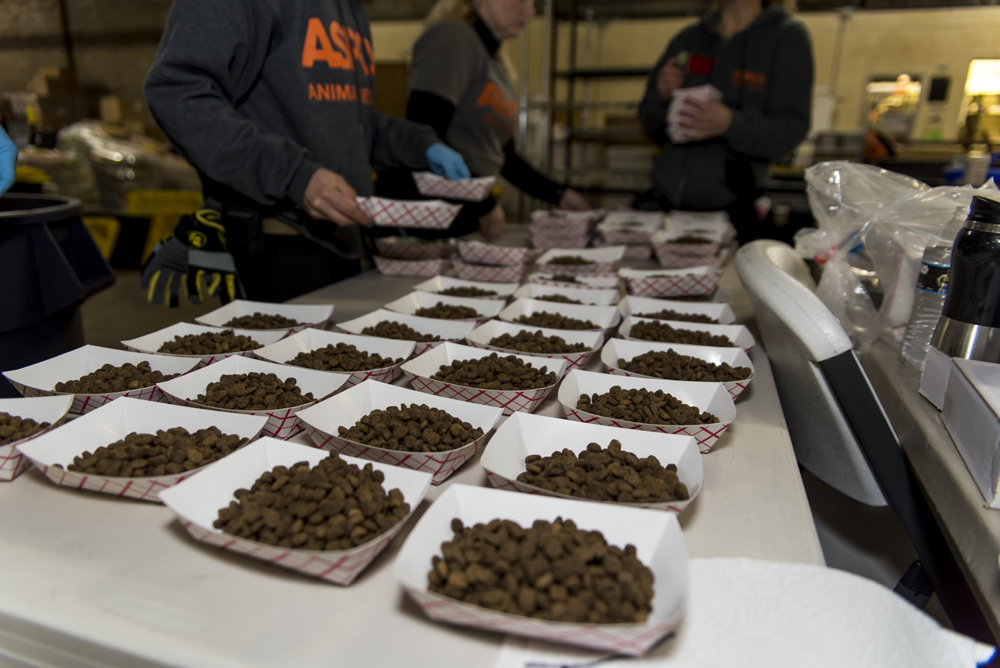
In early March, the owners of The Haven relinquished ownership of the animals being cared for in the emergency shelter and the ASPCA held a two-day adoption event for the animals. The OHS responders went to work preparing the shelter for the arrival of eager adopters. They rearranged kennels to ease the flow of traffic, put up decorations and directional signs, and stuffed hundreds of adoption packets.
The public response to the adoption event was greater than anyone had hoped. By the end of the first day, over 2,600 members of the public had visited the shelter and more than 400 dogs and cats had found forever homes. OHS responders worked at every aspect of the event: controlling traffic, screening potential adopters, adoption counseling, bringing newly adopted pets from the kennels to their new forever families and, of course, making sure the kennels and catteries were kept clean and all the animals fed on schedule!

The ASPCA deployment is but one of many instances in which OHS volunteer response teams have stepped up to help care for animals in harm’s way. From Hurricane Katrina to the tornadoes in Joplin, Missouri to local large-scale rescues, OHS responders have been there, doing their part. Each of them has stories to tell, but all the stories end the same way: “I’d do it again in a heartbeat.”
Contributed by Cecil Reniche-Smith, OHS Volunteer
Photo Gallery
Additional Information
ASPCA: Largest Companion Animal Rescue »
ASPCA: Number of Animals Seized in Raid Climbs to Nearly 700 »
ASPCA: Nearly 700 Rescued Animals to Go Up for Adoption »
ASPCA: 500 Adoptions in One Weekend »
Active OHS Volunteers – Extra Steps to Become Emergency Animal Shelter-Certified
Below are some of the requirements that OHS volunteers complete in order to deploy to help organizations like the ASPCA with these large-scale rescues. These dedicated volunteers each put in a great deal of time and effort to train for these deployments.
- Be an active and current OHS Volunteer
- Select FEMA Emergency Management Institute courses—Total estimated time: 17 hours
- Complete at least one OHS Emergency Animal Sheltering (EAS) Mock Drill
- If wanting to deploy with ASPCA (most common offsite deployment), additional classes recommended (Fundamentals of Emergency Sheltering; Large Scale Operations; etc.)
- Recommended: additional, regular OHS classes such as Dog/Cat Safety & Handling; continuing EAS education; Pet First Aid; additional FEMA courses; others such as these ASPCA webinars
Current volunteers interested in becoming EAS-certified are welcome to contact the OHS volunteer department.
